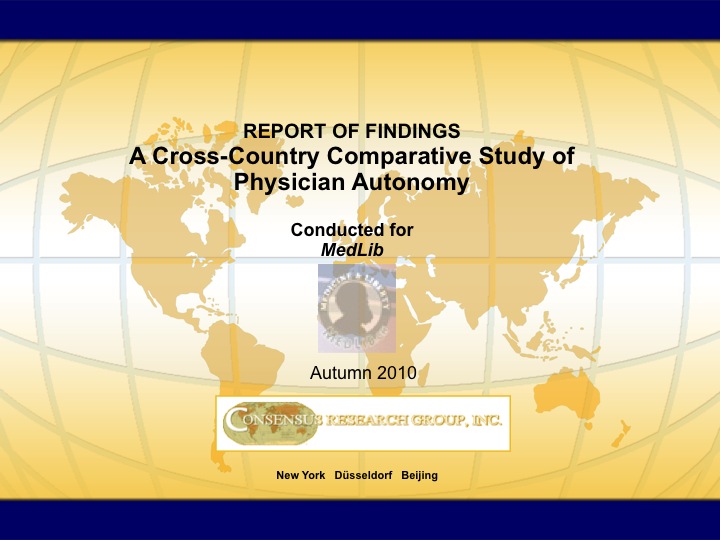![]()
Frederik Roeder économiste allemand a étudié la gestion hospitalière, l’économie de la santé et le commerce international dans les universités de Göttingen (Allemagne), de Bayreuth (Allemagne), de Maribor (Slovénie) et à l’Université Tongji de Shanghai (Chine). Il dirige Healthcare Solutions et est également professeur invité à la l'Université Lithuanienne de Sciences de la Santé de même qu’à l’Ilia State University (Géorgie.) Il est également chercheur associé à l'Institut Economique de Montreal.
Michael Schlander
Médecin et économiste le Professeur Michael Schlander enseigne l'économie de la santé à l'Université de Heidelberg ainsi que la gestion de l'innovation en économie de la santé à l'Université de Sciences Economiques Appliquées de l'Université de Ludwigshafen. Il a fondé l'Institut pour l'Innovation et l'Evaluation de la santé (Inno Val HC) et a notamment étudié le rôle et les imites des processus d'évaluation d'efficacité économique dans le domaine de la santé
Nicoleta Acatrinei
Nicoleta Acatrinei est à la fois diplomée en economie et en théologie. Elle a ecrit un livre remarqué "St Jean Chrysostome et l'Homo Oeconomicus" qui explore notamment les racines theologiques de l'ethique du marché. Elle termine actuellement une thèse de doctorat sur l'éthique & l'économie à l'Ecole Polytecnique Fédérale de Zurich. Elle collabore avec Médecine & Liberté en qualité de chargée de recherche sur l'Ethique et l'Economie depuis fevrier 2009.
Francis Thevoz
Chirurgien cardio-vasculaire de formation et ancien président de la Société Vaudoise de Médecine, le Dr Francis Thevoz a dirigé le département des finances de la Ville de Lausanne en qualté de municipal élu. Il est député au Grand Conseil et siège à la commission des finances. Francis participera notamment au suivi de notre projet Privamed-Pro
Sophie Crespo
Après des études médicales à la Faculté de médecine de l'Université de Bâle, le Dr Sophie Crespo, consultante pour nos projets de publications et séminaires, est spécialiste FMH en médecine interne et en anesthésiologie.
Contact: sophiecrespomd@medlib.ch
Fabienne Gay-Crosier
Le Dr Fabienne Gay Crosier, allergologue et immunologue, a rejoint notre Conseil consultatif medical en 2014. Elle a notemment été présidente de la Commission de politique professionnelle de la SSAI et déléguée suppléante de la Chambre médicale FMH pour l'AMG et de la Societé Romande de Médecine. Elle est fermement engagée dans la défense de la médecine libérale depuis plusieurs années. Auteur "Geneva's White Paper on Allergy" Fillon Imprimerie (2015.)
Dr Loredana D'Amato Sizonenko
Le Dr D'Amato Sizonenko est geneticiste. Elle est resposable de l'antenne Suisse d'Orphanet: une organisation internationale qui développe notamment une base de donnéees sur les maladies rares et médciaments orphelins afin d'améliorer le diagnostic, la prise en charge et le traitement de patients souffrant de maladies rares.
Martín Krause
Enseigne l'Economie à l'Unversité de Buenos Aires et dirige le Centre Argentin d'Investigation sur les Institutions et Marchés
Philip Stevens
Dirige le progamme Santé de l'International Policy Network, Londres. Auteur de nombreuses publications dont Fighting the diseases of Poverty (2007), Free trade for better health (2006) et The 10/90 Gap and the diseases of poverty (2004).
Shahnaz radjy
Titulaire d'une licence en Biologie de l'Université de Pensylvanie, Shanaz a initialement travaillé bénévolement dans des Hopitaux en Bolivie ou elle a fondé A-TIC une entreprise IT. Elle a collaboré avec l'OIT dans l'organisation d'évènements et a travaillé pour le Forum Economique Mondial de Davos. Elle réside à présent à New York et travaille dans le domaine de la prévention santé.
Bart Madden
Bartley Madden, chercheur indépendant, a conçu un modèle economique expérimental (Dual Tracking) destiné à accélèrer l'accès aux substances thérapeutiques nouvelles, ceci avant le terme des processus adminstratifs d'enregistrement Ce concept est soutenu par le Prof. Vernon Smith, prix Nobel d'économie en 2002 qui a préfacé la monographie de Bart Madden: "Dual Tracking:More Choices, Better Health". Une version française de cet ouvrage, a été produite par Médecine et Liberté et sera présentée lors de la conférence.
Stefan Metzeler
Diplomé de l'Ecole Polytechnique Fédérale de Lausanne. Specialiste en technologie de l'information et propriétaire de Amadeus IT. Représentant de ISIL pour la Suisse
Contact: smetzeler@medlib.ch
Pierre Bessard
Délégué général de l'Institut Constant de Rebecque, Lausanne, et Directeur du Liberales Institut, Zurich
Henri Siegenthaler
Président de la Société Suisse pour l'Indépendance de la Médecine et rédacteur en chef du Journal médical "Le Médecin et son Patient". Auteur de "Serons-nous tous euthanasiés?" Ed. Cabedita (2015).
Pierre Lemieux
Professeur d'économie à Université du Québec en Outaouais et auteur de nombreux ouvrages dint "Le droit de porter des armes" (Paris: Les Belles-Lettres, 2003) ,"Comprendre l'économie"(Les Belles-Lettres 2008) ou "Public Health Insurance under a Non Benevolent State". Editeur de la tribune online Liberté au Canada"
Georges Lane
Georges Lane est un expert reconnu en matière de Sécurité Sociale. Enseigne l’économie de l’assurance à l'Université Paris-Dauphine.
Ernest Truffer
Médecin ORL et philosophe médical suisse. Autheur de nombreux ecrits en défense de l'ethique Hippocratique parus dans divers journaux et revues médicales ainsi que dans son blog Sens Commun.
Ernest est malheureusement décédé le 11 mars 2015 et sera profondément regretté par tous ceux qui l'ont connu. Son approche ethique de la mission médicale qu'il défendait sans compromis, est au coeur des principes fondateurs de Médecine et Liberté.
Gabriel Calzada
Professeur d'économie à l'Université Rey Juan Carlos, Madrid. Fondateur de Medicina en Libertad (Medlib.es) et de l'Institut Juan de Mariana, Madrid.
Gabriel est à présent recteur de l'Université Francisco Marroquin, au Guatémala. Il est également président de la Société du Mont-Pélerin.
Victoria Curzon Price
Professeur d'économie à L'Université de Genève. Présidente de l'Institut Constant de Rebecque. Ancien président de la Société du Mt Pelerin. Memebre du Grand Conseil de Genève.
Rudolf Mayer
Opthalmologue à Lausanne, Rudolf Mayer défend depuis de nombreuses années l'autonomie médicale dans le débat politique Suisse sur la santé. Il fait partie du comité de rédaction de la revue médicale suisse de politique de santé "Le Médecin et son Patient"
Alphonse Crespo
![]() Fondateur de Médecine et Liberté
Fondateur de Médecine et Liberté
Chirurgien orthopédiste. Directeur de Med-consilium service d'avis & expertises médicales LAA. Vice-président du comité de l'Institut Libéral. Président du Cercle de philosophie politique Benjamin Constant. Membre de la Fédération des Médecins Suisses (FMH), de la Société Suisse d'Orthopédie (SSO), de l'Association Romande de praticiens en expertise médicale (ARPEM), de la Société Vaudoise de Médecine (SVM) et du Comité de Rédaction du Courrier du Médecin Vaudois.
Auteur de
« Esculape Foudroyé » Les Belles-Lettres Paris, 1991 (ISBN 2-251-39008-4), ainsi que de nombreux essais et articles dont:
« D'Adam Smith à Karl Marx... et retour. En passant par le groupe de Coppet», 2011 Insitut Coppet (lire en ligne)
« Hippocrate et le Marché: La médecine face à l’économie» dans « Orthopädie an der Schwelle » Luzi Dubs (Hrsg.) Verlag Hans Huber 2000 (ISBN 3-456-83508-6)
« Une Sieste à La Havane et autres récits Obituaires » (fiction) 2005 Theles, Paris (ISBN 2-84776-506-9)
Serban Sichitiu
Privat-Docent et pédiatre, Serban Sichitiu est un de fondateurs de l'Union Patients-Médecins, association née en 1996 et active en Suisse dans la défense de la liberté des médecins et des patients.
Médecine & Liberté
Sentier de la Tour-Carrée 9
CH-1800 Vevey - Suisse
Tél & fax: 41 21 922 60 82
info@medlib.ch
MedLib Comparative Study on Physician Autonomy
Cross-country physician survey conducted for MedLib by Consensus Research covering US, Switzerland, Germany & Singapore, on the impact of health care environments on professional autonomy and mission.
To video presentation of preliminary results:
AAPS Conference 2010 (Speaker Dr Alphonse Crespo/You-Tube)
To media summaries:
US - Singapore - German/Swiss
KEY FINDINGS
The study targeted 1000 GPs and specialists from the four selected nations. Questions covered issues such as the role of doctors in society, the impact of third parties on doctor-patient relationship or on freedom of access to innovation.
In all four countries, doctors proved defensive about their present role in health care. Only 54% express significant satisfaction with the quality of care they are able to provide to patients. Positive ratings of specific aspects of medical practice fall into a low 15%-35% range, with most dissatisfaction centered around administrative paperwork that doesn’t allow doctors enough time for patients [69%].
Physicians grieve a loss of autonomy that no longer allows them to treat each patient as an individual, rather than as a statistic. Nearly three out of four surveyed doctors [70%] consider “professional autonomy” as crucial to proper medical practice, with only 38% currently satisfied with their freedom to select adequate prescription medicines and procedures without government or bureaucratic interference. Dissatisfaction with lack of professional autonomy is more pronounced in Germany [62%] and the U.S. [47%] than in Singapore [9%] or Switzerland [17%].
Doctors hold government accountable for the obstacles they face in their practices, and sense that their professional associations have failed to represent them effectively: Only 7% of doctors are satisfied with the effectiveness of their professional medical associations in influencing health care policy and supporting their interests. Dissatisfaction with malpractice lawsuits and insurance costs [51%], with excessive patient workloads imposed by third party administrators [50%,] and with delays in government regulatory approval of new medicines and procedures [45%] rank amongst other significant sources of concern.
27 mars 2011

 RSS feed
RSS feed
